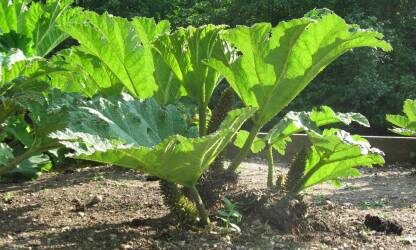Retailers urged to discontinue sales of gunnera manicata
OATA has also urged retailers to check the plants they are selling are correctly labelled and match the species sold

Retailers who sell pond plants have been advised to stop selling plants named as gunnera manicata because of the likelihood that many plants under that name are the result of crossing with G.tinctoria, which is banned from sale.







